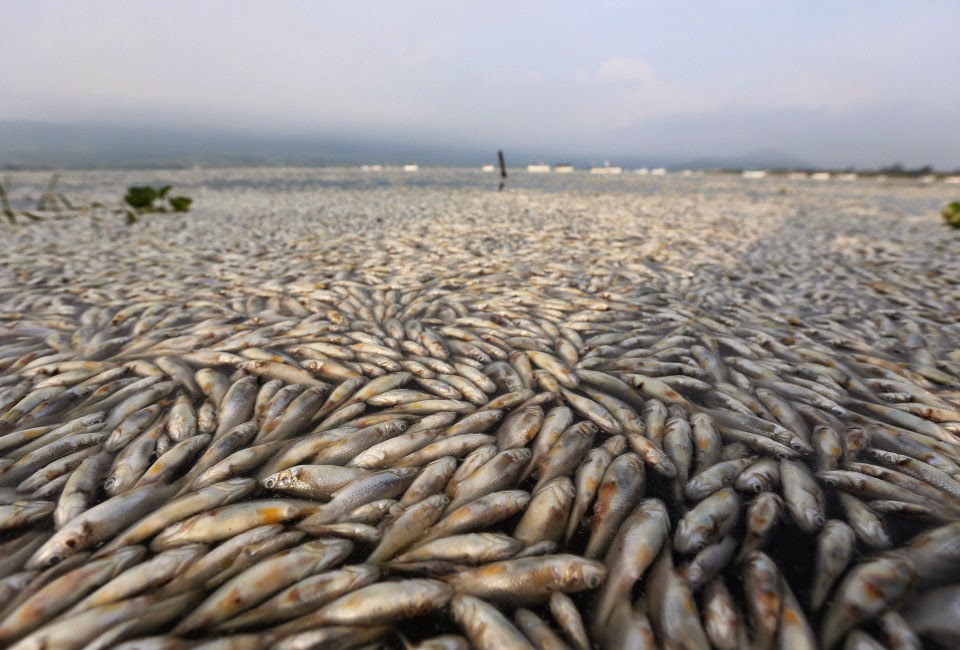| Vocativ | Sep 8, 2014 | Jan-Albert Hootsen and Duncan Tucker |
The incident was the worst in a series of environmental disasters in Mexico this year
CAJITITLÁN, MEXICO—Gaze across Lake Cajititlán here in western Mexico and normally you’ll see fisherman cutting their nets and tourist boats gliding over the blue-green water. But that picturesque scene turned grim last week when more than 4 million dead fish suddenly surfaced, turning the water a sinister shade of gray.
For days, the smell of rotting scales lingered in the air as locals joined government workers to scoop up more than 156 tons of freshwater popoche chub, a sardine-sized species native to the western state of Jalisco.
 |
Millions of dead fish mysteriously rose to the surface
of Lake Cajititlán in western Mexico last week.
EFE/ZUMAPRESS.com
|
Mexico, like many developing nations, has a poor environmental record, but it was still unusual for the country to experience such a quick succession of environmental disasters. What ties them together, critics say, are lax environmental standards, a complete lack of industry oversight and an inability to penalize people and companies that pollute.
“These cases are just the tip of the iceberg of the opacity in which industries in Mexico operate,” environmental watchdog Greenpeace said last week in a statement. “The laxity of the laws permit them to contaminate in exchange for derisory fines posing as ‘reparation of damages,’ without taking into account any external factors.”
The case of Lake Cajititlán is a classic example of how disasters often unfold in Mexico. Environmental experts are still trying to figure out what killed the fish, but that hasn’t prevented the authorities from bickering over who or what was to blame.
 |
The incident was the worst in a spate of
environmental disasters in Mexico this year.
VOCATIV/DUNCAN TUCKER
|
The mayor suggested that the mass deaths were merely the result of natural biological cycles, but state officials dismissed this theory out of hand, blaming the disaster squarely on his government’s failure to properly treat the sewage that enters the lake from surrounding towns and industrial plants.
Although unproven, such accusations gained credence late last week when the Del Toro administration admitted it had discovered a fault in part of a waste water treatment plant where animal remains, solvents, combustibles and industrial chemicals are processed before entering the lake.
 |
Locals joined government workers to scoop up more than 156 tons of
freshwater popoche chub, a sardine-sized species native to the western state of Jalisco.
CORBIS/ EPA/Ulises Ruiz Basurto
|
No comments:
Post a Comment